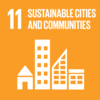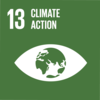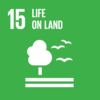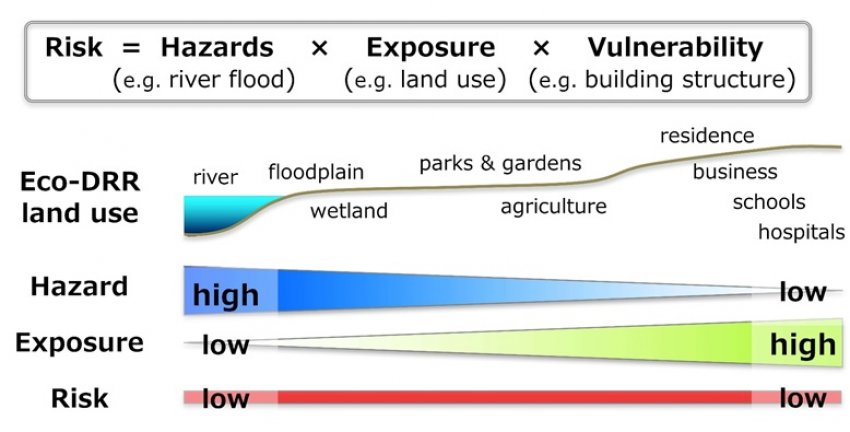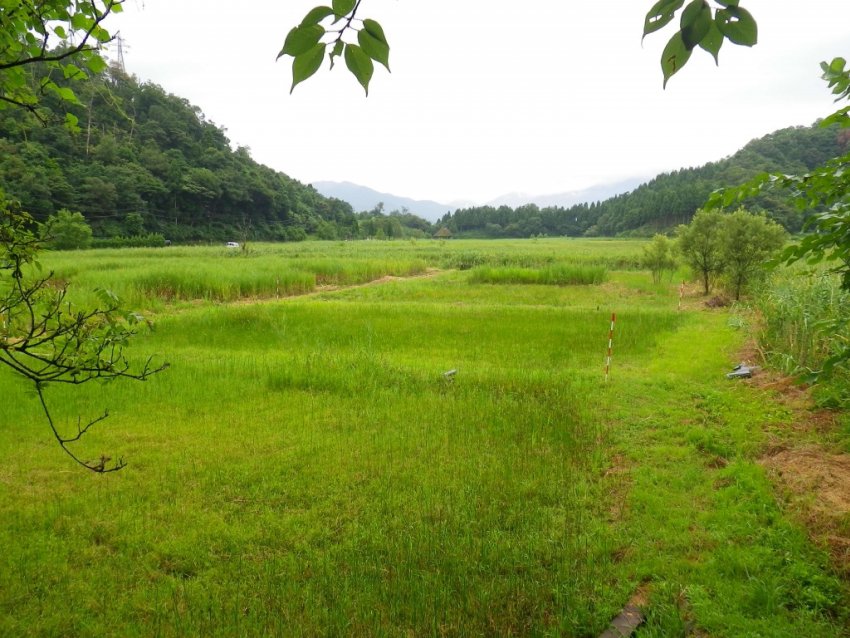Research and Social Implementation of Ecosystem-based Disaster Risk Reduction as Climate Change Adaptation


Takehito Yoshida
Graduate School of Arts and Sciences
Associate Professor
※ Finished
The occurrence of natural disasters has been increasing partly due to the current climate change, and thus adaptation to disaster risks is important for local communities. At the same time, many of these communities are experiencing shrinking populations. The ecosystem-based disaster risk reduction (Eco-DRR) takes advantage of the multi-functionality of ecosystems, including their capacity to mitigate disaster risks while providing multiple ecosystem services. Population decline provides ample opportunities for implementing Eco-DRR. This project research will develop practical solutions for the implementation of Eco-DRR in local communities by visualizing natural disaster risks, evaluating multi-functionality of Eco-DRR, conducting scenario analysis, examining traditional and local knowledge of Eco-DRR, and collaborating with insurance and other sectors.
The occurrence of natural disasters has been increasing partly due to the current climate change, and thus adaptation to disaster risks is important for local communities. At the same time, many of these communities are experiencing shrinking populations. The ecosystem-based disaster risk reduction (Eco-DRR) takes advantage of the multi-functionality of ecosystems, including their capacity to mitigate disaster risks while providing multiple ecosystem services. Population decline provides ample opportunities for implementing Eco-DRR. This project research will develop practical solutions for the implementation of Eco-DRR in local communities by visualizing natural disaster risks, evaluating multi-functionality of Eco-DRR, conducting scenario analysis, examining traditional and local knowledge of Eco-DRR, and collaborating with insurance and other sectors.
Related links
Research collaborators
Researchers from the University of Tokyo include,
- Akiko Iida, Graduate School of Engineering, Assistant Professor
- Motomi Ito, Graduate School of Arts and Sciences, Graduate School of Arts and Sciences
- Haruo Saito, Graduate School of Agricultural and Life Sciences, Assistant Professor
- Ryosuke Shibasaki, Center for Spatial Information Science, Professor
- Kazuhiko Takeuchi, Integrated Research System for Sustainability Science, Director
- Kazuaki Tsuchiya, Graduate School of Agricultural and Life Sciences, Assistant Professor
- Masahiko Nagai, Center for Spatial Information Science, Project Associate Professor
- Shizuka Hashimot, Graduate School of Agricultural and Life Sciences, Associate Professor
- Hiroaki Furumai, Graduate School of Engineering, Professor
- Hiroyuki Miyazaki, Center for Spatial Information Science, Project Assistant Professor
- Tadashi Miyashita, Graduate School of Agricultural and Life Sciences, Professor
- Nobuyuki Yagi, Graduate School of Agricultural and Life Sciences, Professor
- Hironori Yagi, Graduate School of Agricultural and Life Sciences, Associate Professor
- Eiji Yamaji, Graduate School of Frontier Sciences, Professor
- Kiyotatsu Yamamoto, Graduate School of Agricultural and Life Sciences, Associate Professor
And many other members from other institutes
- Akiko Iida, Graduate School of Engineering, Assistant Professor
- Motomi Ito, Graduate School of Arts and Sciences, Graduate School of Arts and Sciences
- Haruo Saito, Graduate School of Agricultural and Life Sciences, Assistant Professor
- Ryosuke Shibasaki, Center for Spatial Information Science, Professor
- Kazuhiko Takeuchi, Integrated Research System for Sustainability Science, Director
- Kazuaki Tsuchiya, Graduate School of Agricultural and Life Sciences, Assistant Professor
- Masahiko Nagai, Center for Spatial Information Science, Project Associate Professor
- Shizuka Hashimot, Graduate School of Agricultural and Life Sciences, Associate Professor
- Hiroaki Furumai, Graduate School of Engineering, Professor
- Hiroyuki Miyazaki, Center for Spatial Information Science, Project Assistant Professor
- Tadashi Miyashita, Graduate School of Agricultural and Life Sciences, Professor
- Nobuyuki Yagi, Graduate School of Agricultural and Life Sciences, Professor
- Hironori Yagi, Graduate School of Agricultural and Life Sciences, Associate Professor
- Eiji Yamaji, Graduate School of Frontier Sciences, Professor
- Kiyotatsu Yamamoto, Graduate School of Agricultural and Life Sciences, Associate Professor
And many other members from other institutes
Related publications
- Robles, L.R. and Ichinose, T. (2016) Trust, connections and social capital in disaster: a study on the 2013 typhoon Haiyan affected residents in Leyte, Philippines. Journal of Environmental Information Science 44(5): 79-86.
- Kamiyama, C., Hashimoto, S., Kohsaka, R. and Saito, O. (2016) Non-market food provisioning services via homegardens and communal sharing in satoyama socio-ecological production landscapes on Japan’s Noto peninsula. Ecosystem Services 17: 185-196.
- Basu, M, Hoshino, S. and Hashimoto, S. (2016) A pragmatic analysis of water supply and demand, and adaptive capacity in rural areas: development of Rural Water Insecurity Index. Natural Hazards 81 (1): 447-466.
- Saito, M.U., Kurashima, O., and Ito, M. (2016) Climate change and the northward shift of Cryptotympana facialis in Japan: evidence from national survey data. Climate Research 68(1): 13-23.
- Molla, N.A., Sangsanont, J., Thayanukul, P. and Furumai H. (2016) Proper dissemination of information to improve people awareness on flood disaster: a case study of 2011 flood in Thailand. Applied Environmental Research 38 (2): 1-12.
- Shin, K.J., Nakakido, R., Horie, S. and Managi S. (2016) The effects of community attachment and information seeking on displaced disaster victims' decision making, PLOS ONE 11(3): e0151928.
- Furuta N. and S. Seino (2016) Progress and gaps in Eco-DRR policy and implementation after the Great East Japan Earthquake. in Renaud, F.G., Sudmeier-Rieux, K., Estrella, M., Nehren, U. (Eds.), Ecosystem-Based Disaster Risk Reduction and Adaptation in Practice, Springer International Publishing Switzerland, 2016, XXII, p. 598
- Miyazaki, H., Nagai, M., Shibasaki, R. (2015) Reviews of geospatial information technology and collaborative data delivery for disaster risk management. ISPRS International Journal of Geo-Information 4(4): 1936-1964.
- Tsuchiya, K., Aoyagi, M., Okuro, T., Takeuchi, K. (2014) The potential of, and threat to, the transfer of ecological knowledge in urban areas: The case of community-based woodland management in Tokyo, Japan. Ecology and Society 19(2): 25.
- Maruyama Y. (2014) Socialization of renewable energy. Yuhikaku. pp. 242. (in Japanese)
- Onuma A. (2012) Monetary benefit sharing arising from bioprospecting with traditional knowledge between the north and the south. International Journal of Ecological Economics and Statistics 26: 16-30.
- Fukamachi, K., Miki, Y., Oku, H. and Miyoshi, I. (2011) The biocultural link: isolated trees and hedges in Satoyama landscapes indicate a strong connection between biodiversity and local cultural features. Landscape and Ecological Engineering 7: 195-206.
- Morimoto, J., Kondo, T. and Miyauchi, T. (2009) Satoyama-satoumi sub-global assessment in Japan and involvement of the Hokkaido Cluster. Landscape and Ecological Engineering 5(1): 91-96.
- Matsuzaki SS, Terui A, Kodama K, Tada M, Yoshida T, Washitani I (2011) Influence of connectivity, habitat quality and invasive species on egg and larval distributions and local abundance of crucian carp in Japanese agricultural landscapes. Biological Conservation 144:2081-2087
- Kamiyama, C., Hashimoto, S., Kohsaka, R. and Saito, O. (2016) Non-market food provisioning services via homegardens and communal sharing in satoyama socio-ecological production landscapes on Japan’s Noto peninsula. Ecosystem Services 17: 185-196.
- Basu, M, Hoshino, S. and Hashimoto, S. (2016) A pragmatic analysis of water supply and demand, and adaptive capacity in rural areas: development of Rural Water Insecurity Index. Natural Hazards 81 (1): 447-466.
- Saito, M.U., Kurashima, O., and Ito, M. (2016) Climate change and the northward shift of Cryptotympana facialis in Japan: evidence from national survey data. Climate Research 68(1): 13-23.
- Molla, N.A., Sangsanont, J., Thayanukul, P. and Furumai H. (2016) Proper dissemination of information to improve people awareness on flood disaster: a case study of 2011 flood in Thailand. Applied Environmental Research 38 (2): 1-12.
- Shin, K.J., Nakakido, R., Horie, S. and Managi S. (2016) The effects of community attachment and information seeking on displaced disaster victims' decision making, PLOS ONE 11(3): e0151928.
- Furuta N. and S. Seino (2016) Progress and gaps in Eco-DRR policy and implementation after the Great East Japan Earthquake. in Renaud, F.G., Sudmeier-Rieux, K., Estrella, M., Nehren, U. (Eds.), Ecosystem-Based Disaster Risk Reduction and Adaptation in Practice, Springer International Publishing Switzerland, 2016, XXII, p. 598
- Miyazaki, H., Nagai, M., Shibasaki, R. (2015) Reviews of geospatial information technology and collaborative data delivery for disaster risk management. ISPRS International Journal of Geo-Information 4(4): 1936-1964.
- Tsuchiya, K., Aoyagi, M., Okuro, T., Takeuchi, K. (2014) The potential of, and threat to, the transfer of ecological knowledge in urban areas: The case of community-based woodland management in Tokyo, Japan. Ecology and Society 19(2): 25.
- Maruyama Y. (2014) Socialization of renewable energy. Yuhikaku. pp. 242. (in Japanese)
- Onuma A. (2012) Monetary benefit sharing arising from bioprospecting with traditional knowledge between the north and the south. International Journal of Ecological Economics and Statistics 26: 16-30.
- Fukamachi, K., Miki, Y., Oku, H. and Miyoshi, I. (2011) The biocultural link: isolated trees and hedges in Satoyama landscapes indicate a strong connection between biodiversity and local cultural features. Landscape and Ecological Engineering 7: 195-206.
- Morimoto, J., Kondo, T. and Miyauchi, T. (2009) Satoyama-satoumi sub-global assessment in Japan and involvement of the Hokkaido Cluster. Landscape and Ecological Engineering 5(1): 91-96.
- Matsuzaki SS, Terui A, Kodama K, Tada M, Yoshida T, Washitani I (2011) Influence of connectivity, habitat quality and invasive species on egg and larval distributions and local abundance of crucian carp in Japanese agricultural landscapes. Biological Conservation 144:2081-2087
Contact
- Takehito Yoshida
- Tel: +81-5454-6645/5454-6423
- Email: cty[at]mail.ecc.u-tokyo.ac.jp
※[at]=@


